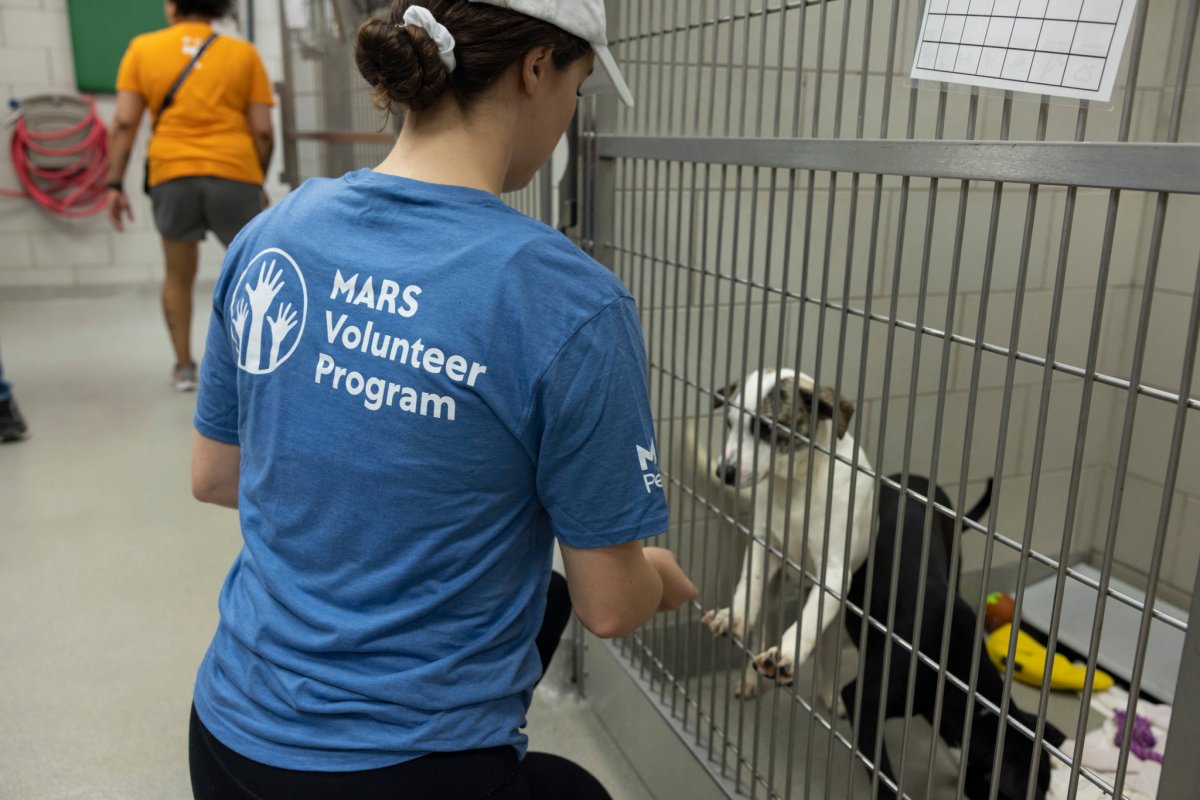The pandemic-fueled surge in pet ownership, followed by a wave of surrenders, has left animal shelters and rescues across Canada are facing a major crisis. Many animals are on waitlists to enter shelters to find forever homes, while shelters need extra funding and support.

“Everybody’s busting at the seams,” says Tanaya Jilg, the executive director at the Animal Rescue Foundation of Alberta. “Every shelter, every rescue is at capacity 24/7. We all try to beg, borrow and steal as much space amongst each other as we can. But that’s how it is right now.”
Her rescue is turning down three-to-five intake calls daily.
Robyn Dmytrow, the director of development at the Oakville & Milton Humane Society in Ontario, says the increase is a direct result of the pandemic. Calls began coming in last year, after restrictions lifted and haven’t stopped.
READ MORE: Animal shelters facing perfect storm as pets are surrendered
“We’re getting about 10 to 15 calls a day from people looking to surrender their pets,” she says. “We don’t see an end to it anytime soon, because there are still that many pets out there. It’s been a perfect storm.”
One organization that hopes to make a difference during this crisis is PEDIGREE Foundation, a non-profit established by Mars Petcare, which launched its first-ever grant program in Canada in October. Now, the company is working with eight shelters across the country to find long-lasting solutions.
In partnership with PEDIGREE Foundation, we look at what can be done to improve the crisis.

Get breaking National news
Finding forever homes
Earlier this year, PEDIGREE Foundation allocated a $100,000 grant that was split across the eight shelters. Funds were distributed based on each organization’s programs and projected numbers.
“The money is for specific programs that can help drive and increase adoption rates,” says Debra Fair, the foundation’s executive director.
Those initiatives include: matching and behavioral programs that increase the likelihood of dogs finding their forever homes; transport programs to move dogs to communities where they will have a higher chance at adoption; and, veterinarian care to help reduce the overpopulation of homeless dogs and provide support to remote communities.
The grants were awarded in October, with a plan to check in after six months to evaluate progress.
“This is our first Canadian-funded grant,” Fair says. “We want to learn from this process — discover the lessons that can be learned and share with shelters and rescues across North America.”
According to Jilg, the PEDIGREE Foundation grant is projected to help roughly 150 dogs in Alberta. Dmytrow says it’s harder to gauge an exact number, but at the time of the grant there were roughly 180 dogs that had come through the shelter. She says the grant will help to free up more space, sooner.
“The faster we can get these dogs rehabilitated and in their forever homes, the sooner we can take in more animals,” she says. “So that number might climb, and we’ll have a better handle on it at the end of the year.”
The need for service humans
The holiday season, as a time of giving, is a perfect time to consider supporting shelters and rescues, not just by giving money, but by giving time and effort. In addition to the grant program, Mars Petcare is working in communities to help fill the need for “service humans” by mobilizing nearly 1,200 of its Canadian employees to volunteer 10,000 hours of support at 60 shelters across the country. It’s also encouraging Canadians to give a part of themselves – in the same way that animals nurture us, we can nurture them.
Both Jilg and Dmytrow’s rescues operate via community volunteers, and fostering is an essential help in opening space for new animals, especially around the holidays. With more people going back to physical offices, there is a decline in foster families who no longer have the time they did during the heart of the pandemic to volunteer.
READ MORE: Pandemic pets ending up in shelters
“There is still and will always be a need for volunteers,” says Dmytrow. “A foster family going back to work isn’t actually a bad thing, because it’s mirroring what that dog would experience when they go to their forever homes.”
She adds, anyone who has time in their day to follow a training plan, take a dog on walks, and work on their socialization is a good fit.
“If you have a home and you’re willing to give some love to an animal, that’s pretty much all you need,” agrees Jilg.
“When you foster with us, all expenses are covered. It’s about giving that animal an opportunity not to have to live in a shelter environment. It allows them to live in a home environment where they can learn to give them their best shot of success at finding their forever home.”
For more information, visit PEDIGREE Foundation .

